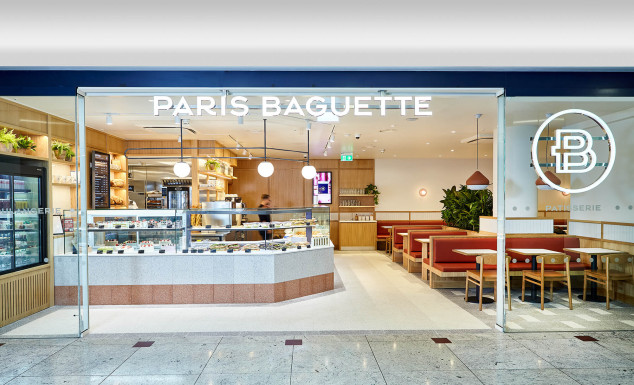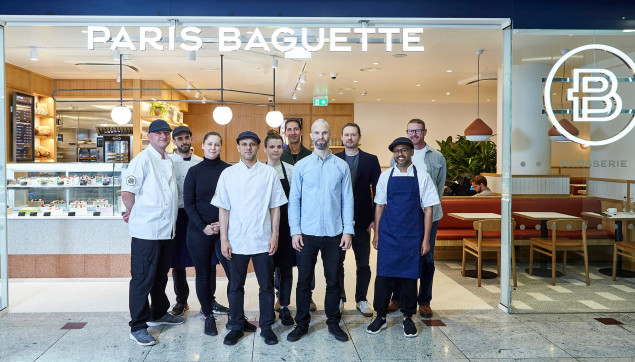What is a bakery franchise?
The range of bakery franchises includes everything from traditional bakeries that sell classic baked goods like bread, pastries and cakes to more modern, specialised businesses like Muffin Break.
Well-known bakery franchises include Greggs and cake franchises such as Cakes & Bakes, but there is also room for a lot of innovation, with gluten-free, vegan and artisan options becoming popular.
Trends in bakery franchising
"Artisan brands that fit with certain lifestyles are big across lots of markets," says Patrick Burge, regional director of Lime Licensing Group. He highlights homemade, kitchen-table-style products, made with locally sourced ingredients, as a growing area.
Growth trends include adding extra ingredients and flavours or overloaded products with lots of toppings. Visual, Instagram-ready appeal is also increasingly popular. Many bakeries use digital marketing to reach out to new customers.
Challenges and opportunities
There are challenges in the bakery franchise sector, including rising costs, increasing competition and red tape. However, businesses are investing in automation and cost-cutting through, for instance, energy efficiency, to keep the prices down.
Patrick Burge adds that this is what makes a franchise option a good investment. Franchisors have done the work to take the risk out of niche brands and show there is growth potential. "The franchise model reduces the risk," he says.
Franchises can also help with the challenges associated with fixed-location premises, such as set-up costs. Location itself is crucial, with planning consent around issues such as change of use potentially required. It can also be difficult to get capital funding, but a good franchise will help with financing support.
Bakery franchise costs
The average cost of a bakery franchise in the UK can vary significantly, ranging from a few thousand pounds for a smaller, kiosk-style operation to hundreds of thousands of pounds for a full-service bakery. Initial franchise fees can range from £5,000 to £300,000.
The cost depends on many factors, including location, the type of bakery franchise, the cost of equipment and shop fit.
Many bakery franchises offer multi-units to franchisees. According to the British Franchise Association (BFA), the last few years have seen an increase in multi-unit ownership. The number of units being acquired by a franchisee has risen from 4.5 in 2018 to approximately 11 now.
Multi-unit operations mean there can be savings of scale. For instance, finance and marketing functions can be centralised and uniform and product costs can be reduced.
Bakery franchise case study: Paris Baguette
One franchise that offers multi-unit savings is Paris Baguette – a French-inspired bakery café chain. It has a long history, which dates back to a small bakery set up in South Korea in 1945.
The franchise business was set up in 1988 and came under the SPC Group, a South Korean food and confectionery conglomerate.
It grew quickly and by 2004, Paris Baguette was the leading bakery in South Korea and had branched out into other countries. It now has franchisees in 11 countries and over 4,000 stores worldwide, with the majority being franchised.
In autumn 2024, its first franchisee-owned store in the UK opened in Canary Wharf. Paris Baguette had already dipped its toe into the UK market – its second in Europe after France – with two company-owned businesses in Battersea Power Station and High Street Kensington. The company knew there was an appetite for more.
Example costs
The franchise fee costs £50K for one store and there is a royalty fee of 5% of sales. The minimum investment required by a franchisee is £400,000. This encompasses site costs, construction, equipment, inventory and training. If franchisees sign up for more than one store, they're charged an upfront £40K franchise fee for each.
What sets this bakery franchise apart is its wide variety of premium baked goods, pastries and cakes alongside a range of hot and cold baguettes.
It also offers a sustainably grown 100% Arabica coffee blend, roasted in London. The bakery’s hero products, however, are its celebratory cakes. These are high-quality, visually appealing cakes freshly baked by a team of skilled bakers.
Belinda Remarczyk, franchise director of Paris Baguette UK, says: “The cakes are very light, not overly sweet and Instagram-ready. They're made with supervision and support from our Korean technical team. They are extremely popular – you can buy a slice or order the whole cake.”
Promoting the brand
She says one of the challenges of starting up in the UK is that not everyone is familiar with the brand yet, despite Paris Baguette’s decades of global success.
So the business is doing a lot of work on building brand awareness in the UK through influencers, pop-ups and giving out in-store samples. It is also partnering with local business and community groups, such as book clubs, building authentic connections with its market and active collaborations.
Belinda states that being a successful global brand and the franchise model itself makes it much easier for franchisees to thrive in the competitive, but booming, UK bakery franchise market.
Paris Baguette offers franchisees comprehensive support as well as a proven model. That includes everything from help with site selection, which is crucial for success, to store design, training, product development, marketing and distribution.
“We have a highly skilled leadership team,” she says. “We want to ensure our franchisees have all the tools and support they need.”
Other Paris Baguette franchisees are in the pipeline for later this year in the London area, but the business is keen to expand across the UK.
A franchisee’s story
Wayne Stevenson has a lot of experience of running a business. He and his brother run their family’s 75-year-old stone quarrying business in Northern Ireland. They've also been operating a property investment business for the last few years.
But in 2024 they spotted an advertisement to open the first Paris Baguette franchise business in the UK and moved into the world of baking franchises.
Wayne had lived in South Korea for around ten years, off and on, and knew the Paris Baguette brand well. In fact, there was a Paris Baguette store at the bottom of his high-rise building in Seoul.
He was well aware of the brand’s potential, particularly amid growing international interest in Korean culture, and the quality of what it offers.
The brothers contacted the franchisor and the head of the European branch of Paris Baguette came to Northern Ireland to talk through what was involved in running a Paris Baguette business.
Support
There was a comprehensive package of support on offer from the franchisor. Wayne says, “I knew it was a fantastic brand and very innovative. I knew the food was delicious and light and that the cream cakes were beautiful to look at.
However, that was the extent of my knowledge of the industry. So the fact the franchisor could support us from the ground up convinced us to invest."
He says that, while there are lots of transferable skills he has acquired over the last decades in business, Paris Baguette was on hand to help out with everything from finding a good location to marketing.
They have helped, for instance, with working out capital expenditure, designing the store layout, sourcing people to fit the store out, hiring and training a general manager and digital marketing.
There is also still a member of staff from the central organisation who helps out in the store. Advice and support are on call whenever it is needed. The cakes and pastries are baked centrally in London and delivered daily to ensure quality control.
Marketing support has included Google advertising, social media outreach, in-store promotions and getting up on the digital screens around Canary Wharf.
This has all been vital because the only big challenge Wayne says the business has faced is that Paris Baguette is not yet established in the UK.
But that also turns out to be an opportunity. “The brand is still growing and people are still learning how delicious everything is,” he says. The Canary Wharf location is also up-and-coming and footfall is increasing outside office hours.
In addition to growing the existing business, Wayne and his brother are now looking at developing the potential for private catering and expanding to another site. “It’s an exciting time,” he says.
Bakery franchises for sale
If you're interested in buying a baking franchise, browse our wide range of franchise opportunities. You can also browse cafe franchises, coffee franchises and fast food franchises.

.jpg)




































































